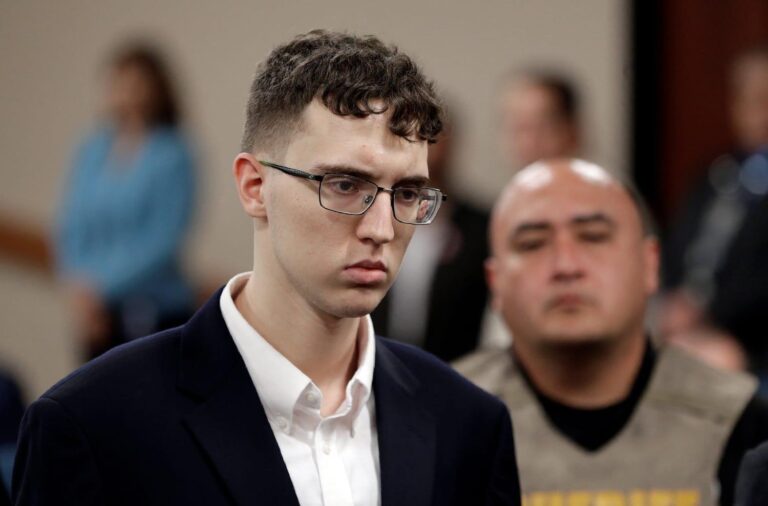El Paso Walmart Shooting: Guilty Plea and Its Wider Significance
Admission of Guilt Marks a Turning Point in El Paso Tragedy
In a significant development for both the El Paso community and the nation, the individual responsible for the horrific Walmart shooting in El Paso, Texas, has officially pleaded guilty to capital murder charges. This catastrophic event, which resulted in the loss of 23 lives, stands as one of the most devastating racially motivated attacks in recent American history. By accepting guilt in state court, the defendant has circumvented a prolonged trial, thereby accelerating the delivery of justice for the victims and their families.
Authorities emphasize that this confession aligns with the overwhelming evidence collected, including eyewitness testimonies and forensic data. The incident has sparked a nationwide conversation about racial violence, hate crimes, and the urgent need for gun control reforms.
- Effect on Families: Although the guilty plea offers some closure, the victims’ families continue to grapple with a complex mix of grief and relief.
- Legal Proceedings: The plea expedites sentencing, with Texas law allowing penalties ranging from life imprisonment to capital punishment for such offenses.
- Community Response: Local leaders and advocacy groups remain active in promoting unity and pushing for systemic reforms to prevent similar tragedies.
| Key Detail | Information |
|---|---|
| Plea Date | April 2024 |
| Number of Fatalities | 23 |
| Location | El Paso, Texas |
| Charges | Capital murder |
Examining the Racial Motivations Behind the Attack
The El Paso shooting was fueled by entrenched racial hatred, as evidenced by a manifesto released by the attacker prior to the assault. This document espoused white supremacist beliefs combined with intense anti-immigrant sentiments, portraying the attack as a calculated effort to intimidate Hispanic communities. Analysts link such violent acts to a combination of personal grievances, radicalization through extremist online networks, and inflammatory political rhetoric.
- Manifesto Highlights: The perpetrator framed the attack as a mission to ‚Äúdefend the American Southwest‚ÄĚ by targeting Hispanic individuals.
- Influence of Online Platforms: Digital forums served as echo chambers, reinforcing extremist ideologies and encouraging violent actions.
- Broader Social Impact: The event intensified racial tensions and amplified demands for legislative reforms addressing hate crimes and gun control.
| Factor | Description | Impact |
|---|---|---|
| Radicalization | Isolation leading to extremist beliefs | Heightened risk of violence |
| White Supremacy | Ideology of racial dominance and purity | Targeted racial attacks |
| Political Environment | Hostile rhetoric on immigration | Normalization of hate-driven attitudes |
Legal Consequences of Capital Murder Pleas in Hate Crime Cases
Entering a guilty plea for capital murder in hate crime cases carries profound legal implications. Such pleas often help avoid drawn-out trials while affirming the justice system’s recognition of racially motivated violence. Prosecutors use these admissions to emphasize society’s condemnation of bias-driven offenses, ensuring that hate crime laws are fully enforced.
Under Texas law, capital murder pleas invoke specific sentencing enhancements and aggravating factors. These legal provisions are essential for imposing severe penalties, which may include life imprisonment without parole or the death penalty. Important legal aspects include:
- Sentencing Enhancements: Hate crime classifications lead to stricter punishment guidelines.
- Victim Impact Considerations: Courts take into account the wider community trauma caused by the offense.
- Judicial Findings: Legal requirements mandate clear determinations of the perpetrator’s motive and intent.
These complexities underscore the thorough approach courts take when handling cases involving racial animus and capital offenses.
Approaches to Healing and Preventing Future Violence
Addressing the ideologies that lead to racially motivated violence requires communities to focus on inclusivity and resilience. Partnerships among educational institutions, local organizations, and law enforcement agencies can develop programs that promote cultural awareness, empathy, and nonviolent conflict resolution from an early age. Expanding mental health support and safe spaces for marginalized groups is critical for both survivors and those at risk. These grassroots initiatives are vital for fostering long-term societal change and strengthening community defenses against hate.
On the policy front, lawmakers are urged to implement stricter gun control measures, such as universal background checks and bans on assault-style weapons. Enhancing hate crime data collection and improving coordination between local, state, and federal agencies are also key to more effective prevention and response. The table below summarizes key policy recommendations from experts and community advocates:
| Policy Area | Recommended Actions |
|---|---|
| Gun Control | Enforce universal background checks; ban assault-style firearms |
| Hate Crime Legislation | Increase penalties; improve reporting and monitoring systems |
| Community Support | Boost funding for mental health and violence prevention programs |
| Data Transparency | Standardize hate crime data reporting nationwide |
Concluding Reflections
The guilty plea by the El Paso Walmart shooter marks a critical step toward justice in the aftermath of one of the deadliest hate crimes in recent U.S. history. As the legal process moves forward, the community continues to face the deep and lasting effects of this tragedy. This case underscores the urgent need to confront the root causes of racial violence and domestic extremism. Authorities remain committed to ensuring accountability and preventing future acts of hate-fueled violence.




